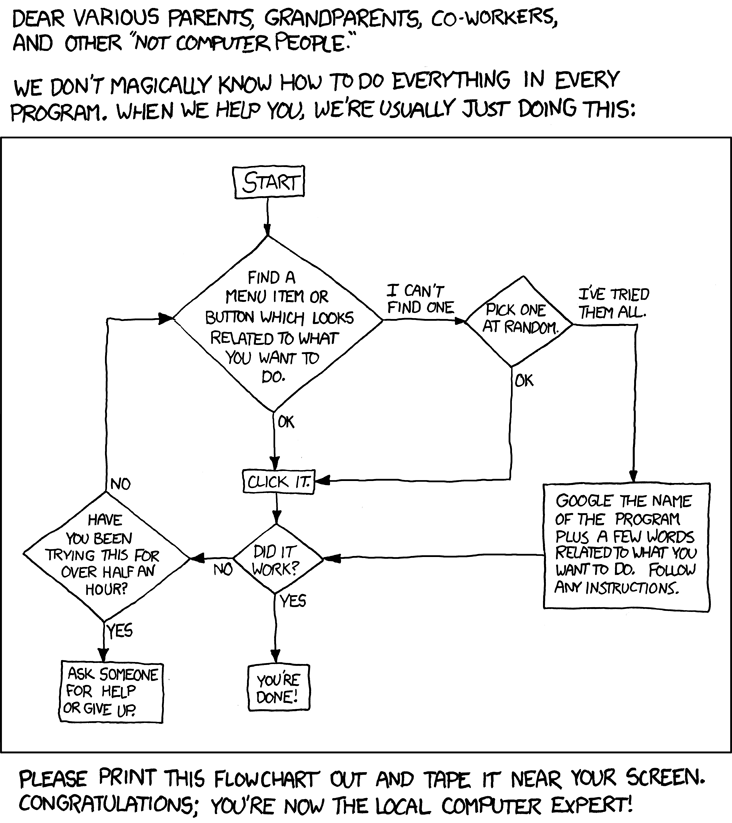Follow-up to: Boring Advice Repository
Many practical problems in instrumental rationality appear to be wide open. Two I've been annoyed by recently are "what should I eat?" and "how should I exercise?" However, some appear to be more or less solved. For example, various mnemonic techniques like memory palaces, along with spaced repetition, seem to more or less solve the problem of memorization.
I would like people to use this thread to post other examples of solved problems in instrumental rationality. I'm pretty sure you all collectively know good examples; there's a comment I can't find from a user who said something like "taking a flattering photograph of yourself is a solved problem," and it's likely that there are other useful examples like this that aren't common knowledge. Err on the side of posting solutions which may not be universal but are still likely to be helpful to many people.
(This thread is allowed to not be boring! Go wild!)

A ridiculously charged topic, how could I miss it?
We're probably among the last generations (as in so many things) that need to bother with the now counterproductive and out-of-place esterification making us fat. Just as we managed to separate the carrot from the stick (the stimulus we get from an action versus the original evolutionary incentivized purpose of that action) with sex/procreation, so will we eventually be able to indulge in feeling satiated without actually storing unwanted lipids.
If not for too strict pharmaceutical standards, some (more) drugs would probably already be available. Given the large impact of diabetes, CHD and other obesity related diseases, even severe side effects in animal trials could be outweighed by the benefits. If not for the fear of lawsuits and strict regulations that throw promising drugs out of the pipeline prematurely. It took a decade and untold needless deaths for gene therapy to recover from a few mishaps to where it can be pursued again.
Regarding losing weight, personally I like the volumetrics approach, it's easily combinable with most diets:
Feeling satiated is - mostly - a combination of mechanoreceptors in the stomach being activated (which is how gastric lap band surgery works) and various hormones reacting to e.g. rising blood sugar (hunger-stimulating Ghrelin gets inhibited), presence of food in the intestinal tract (hunger-inhibiting PYY is released, NB: it's released more effectively by high-protein intake which would help explain the effectiveness of some high-protein diets, such as variants of keto), and leptin (released by adipocytes, can be mostly ignored, since obese people apparently have high leptin levels and a corresponding high leptin resistence).
Now, there is of course a latency between food entering your stomach and the mechanoreceptors triggering and PYY being released.
Therefore, a sensible measure is the following: Drink a large-ish quantity of water (cold and tasty with lemon) before every meal (to pre-load the mechanoreceptors), eat slowly (so you don't eat more when your satiation signal is already in the process of being triggered), add taste-neutral e.g. salad to your normal food (I just pack my sausage sandwiches with large quantities of unprepared salad = little extra effort, halves the amount of high-caloric food I require before feeling completely full, mixed in it doesn't even taste any different*.) Don't drink caloric beverages, they're not as effective calorie-for-calorie in distending your stomach, since fluids aren't bulky enough.
These changes do not inhibit my "food experience" in any meaningful way, yet nearly halved my daily caloric intake.
It seems irrational to give up on dieting merely because the process can be complicated. That's not a good reason to give up on FAI, so why should it be for dieting? The impact in energy levels between being obese and normal is redunculous, even if losing weight is hard, it still promises the most bang-for-the-buck in increasing your productivity, your self-image and your quality of life. Sure some have it easier or harder than others. C'est la vie.
* The trick is that salad-diluted sausage still tastes just like sausage, and still causes the satiety inducing effects on the same order as double sausage.
Obesity is interesting because I regard it as a partially-solved problem. For example, dinitrophenol would solve much of it: it makes mitochondria less efficient and so effectively increases metabolism, but at the cost of emitting waste heat - which is potentially fatal and got it banned despite its apparent effectiveness. It could still be safely used; it's 2013 so electronic thermometers are a dime a dozen. Take patients to a fat camp, dress them in clothes with thermometers constantly recording and now doses can be adjusted based on detailed data and th... (read more)